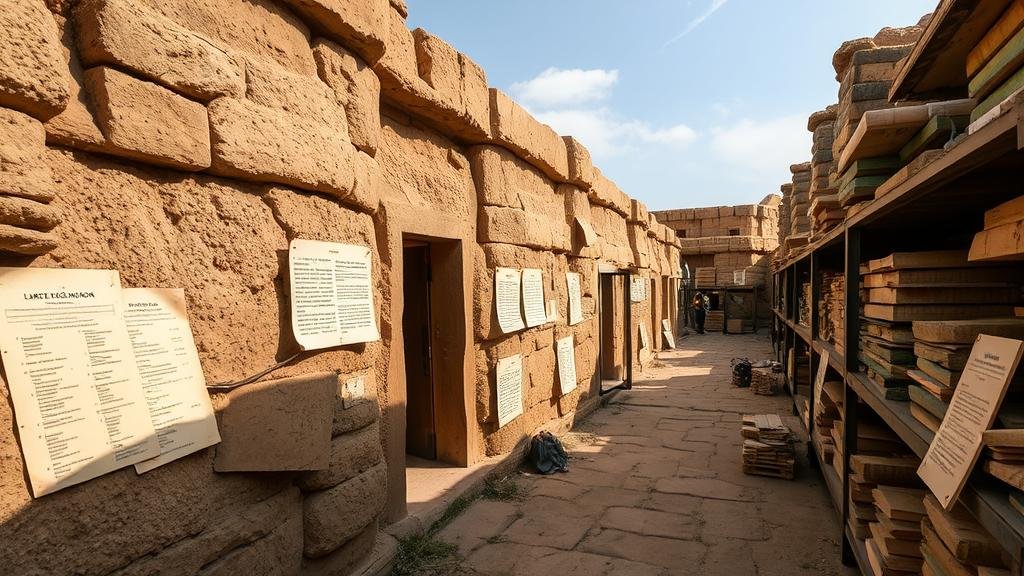Mining the National Archives for Records on Lost Civilizations
Mining the National Archives for Records on Lost Civilizations
The exploration of lost civilizations is often challenged by the scarcity of archaeological evidence and fragmented historical accounts. But, a significant resource for researchers and historians lies within the National Archives. These repositories house a wealth of documents that can provide insights into ancient societies, their cultures, governance, and eventual decline. This article aims to investigate the potential of utilizing the National Archives to unearth records related to lost civilizations.
Historical Context of Lost Civilizations
Throughout history, numerous civilizations have risen and fallen, leaving minimal traces behind. Examples include the Indus Valley Civilization, the Minoans, and the Ancestral Puebloans. Each of these societies exhibited advanced urban planning, trade systems, and cultural richness, yet they disappeared under circumstances that remain partially understood. By examining governmental records, personal letters, and maps found within the National Archives, researchers can reconstruct aspects of these lost cultures and gain a deeper understanding of their historical significance.
National Archives as a Resource
The National Archives is more than a repository of governmental documents; it serves as a treasure chest of historical artifacts, maps, and correspondence. Many of the records date back several centuries, potentially encompassing periods when the lost civilizations thrived. Significant collections include:
- Colonial records which may mention interactions with the remnants of these civilizations.
- Exploratory documents that detail expeditions to areas once inhabited by these cultures.
- Maps that show trade routes and territorial boundaries.
Documentation from as early as the 16th century reveals European explorers’ records of indigenous tribes and encountered ruins, raising questions about their origins and connections to established civilizations.
Case Studies: Insights from Specific Records
Analyzing specific documents can yield valuable data on lost civilizations. Two notable case studies include:
The Indus Valley Civilization
Records from British colonial administrations contain references to archaeological sites such as Mohenjo-Daro and Harappa in the 19th century. Notably, Sir Alexander Cunningham, who conducted early excavations in the 1850s, reported on the urban planning and drainage systems, which were advanced for their time. Such documentation illustrates the complexities and capabilities of the Indus Valley civilization and provides a basis for further archaeological investigation.
The Minoan Civilization
National Archives hold correspondence from explorers during the early 20th century, particularly Arthur Evans. His findings at Knossos are documented extensively and provide insights into Minoan culture, including aspects of their economy and governance. Evans records, alongside maps detailing the spread of Minoan artifacts across the Mediterranean, allow researchers to grasp the expanse and influence of this civilization.
Challenges of Data Interpretation
Mining the National Archives for information on lost civilizations poses several challenges. The interpretation of historical documents requires critical analysis, including understanding the biases of the authors, potential misdating of artifacts, and the context in which the documents were created. Plus, records are often incomplete, necessitating a multi-disciplinary approach to corroborate findings with archaeological evidence.
The Future of Research and Preservation
As technology advances, the digitization of National Archives will enhance accessibility for researchers worldwide. This will facilitate broader studies and encourage collaborative projects that can connect disparate pieces of evidence regarding lost civilizations. Ongoing preservation efforts are crucial to maintaining the integrity of these records, ensuring that future scholars can access them for insight into ancient societies.
Conclusion
Mining the National Archives for records related to lost civilizations offers a promising avenue for scholarly research. By uncovering documented evidence from the past, historians can reconstruct lost histories and expand our understanding of ancient cultures. The integration of archival research with archaeological findings can lead to more comprehensive narratives about civilizations that once thrived but have since faded from memory.
Effective academic inquiry requires not only the exploration of these archives but also a commitment to rigorous analysis and interpretation of the data retrieved. Ultimately, the combined efforts of historians, archaeologists, and archivists can illuminate the complexities of humanity’s past, fostering a deeper appreciation for the civilizations that came before us.



